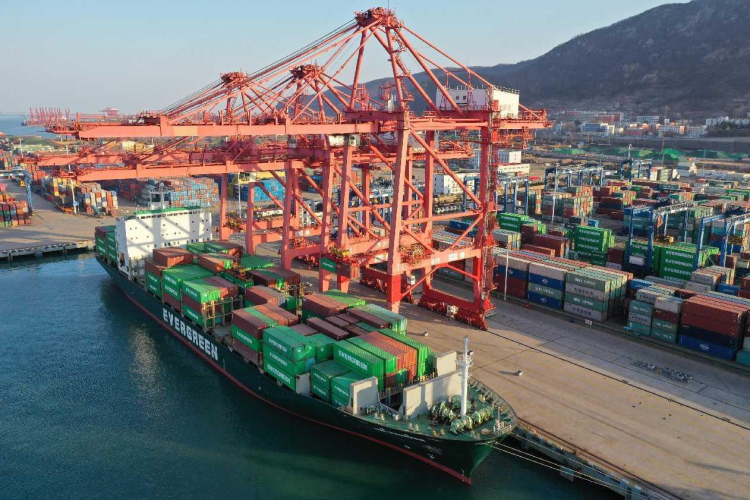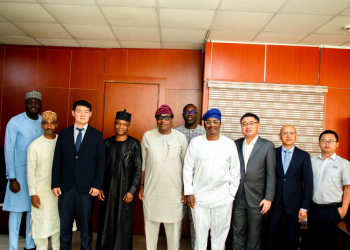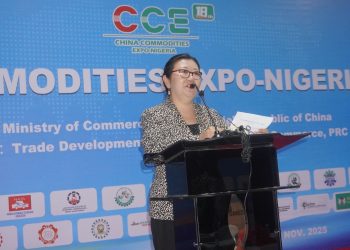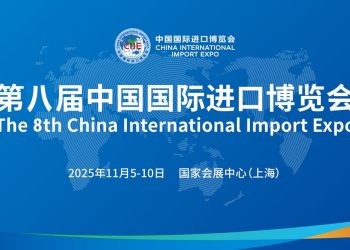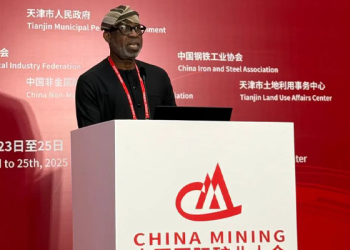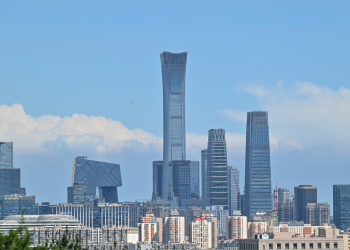Not long ago, 1,960 tons of goods left the International Land Port of Gansu (Lanzhou) in Lanzhou city, northwest China’s Gansu province by train, and were then transferred from Lianyungang Port in Lianyungang city, east China’s Jiangsu province, to Southeast Asia by ship. Meanwhile, 3,300 tons of iron ore imported by Jiuquan Iron and Steel Corporation were transported from Lianyungang to Lanzhou.
The above-mentioned trips were the very first trips along the combined sea-rail transport route connecting Lanzhou and Lianyungang, which represented new progress made by the coastal province of Jiangsu and the inland province of Gansu in the construction of the route.
The rail-sea transport service enables the International Land Port of Gansu (Lanzhou) and Lianyungang Port to share and integrate their logistics resources and the two provinces to realize mutual complementarity in their superior resources.
It is also expected to benefit the construction of land port national logistics hub in Lanzhou, increase the number of global container shipping routes of Lianyungang Port, and help build more stable and reliable logistics channels for transit goods and foreign trade companies based in China’s inland cities.
From road-rail multimodal transport services connecting China and Central Europe, Central Asia, and South Asia to the New International Land-Sea Trade Corridor and the China -Kyrgyzstan-Uzbekistan multimodal transport route, Gansu province has so far opened five international transport routes, with Lanzhou serving as a key hub.
By jointly building new land-sea multimodal transport hubs through the new route, Gansu and Jiangsu have integrated Lanzhou’s advantage of serving as a gateway to the west and Lianyungang’s advantage of facilitating opening to the east.
The first freight train of a combined sea-rail transport route connecting Lianyungang city, east China’s Jiangsu province to Lanzhou city, northwest China’s Gansu province, leaves China-Kazakhstan logistics base in Lianyungang city, Jan. 15, 2022. (Photo by Wang Chun/People’s Daily Online)

The cooperation between the two provinces has made it easier for goods to be transported from Gansu to foreign countries by sea, which bears great significance for China’s endeavor to achieve nationwide opening-up that coordinates the coastal and inland areas and connects the eastern and western regions and promoting the positive interplay between domestic and international circulation.
Connection brings about better efficiency. The newly launched sea-rail transport route, which features highly efficient connection between channels, convenient transfer of goods, and one-stop services, provides comprehensive transportation services with low cost and high efficiency.
The new passage, which links the land and maritime silk roads, helps trade companies in the two provinces and along the route reduce transportation costs and improve transportation efficiency. It is also expected to bring new mission of the times to the railway connecting Lianyungang and Lanzhou, and involve more regions of the country in the joint construction of the Belt and Road Initiative (BRI).
Cooperation between Lianyungang and Lanzhou has created new space for development. At the end of 2021, Lianyungang Port Holdings Group Co., Ltd. and the management committee of the International Land Port of Gansu (Lanzhou) signed a strategic cooperation framework agreement.

At the beginning of this year, Lanzhou and Lianyungang signed a strategic agreement on regional cooperation and development in the new era, aiming to carry out in-depth cooperation in logistics services for commerce and trade, science and technology education, cultural tourism, and talent exchange in key industries including hub ports, petrochemical refining, and equipment manufacturing.
The endeavor of the two sides to strengthen coordination and collaboration between the International Land Port of Gansu (Lanzhou) and the Lianyungang Port is considered a powerful measure for deepening bilateral pragmatic cooperation and helpful for promoting mutual complementarity, resource sharing, and mutual benefit and win-win results.
Thanks to joint efforts made by various parties, pragmatic cooperation has been pushed forward continuously, with some projects achieving initial progress and new projects gaining momentum.
Facts have shown that by building network and platform for Belt and Road cooperation and advancing the development of projects in key fields according to actual conditions, various parties can share development opportunities and achieve common prosperity.





























